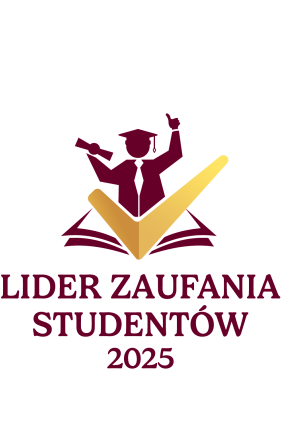
Staż studentki z Belgii w ramach IFMSA
Kyna Rigouts - studentka III roku licencjatu nauk biomedycznych (3rd Bachelor of Biomedical Sciences) z Uniwersytetu w Antwerpii (University of Antwerp, Belgia) - w ramach Międzynarodowego Stowarzyszenia Studentów Medycyny (The International Federation of Medical Students Associations, IFMSA) przebywała na stażu w Katedrze Mikrobiologii Wydziału Farmaceutycznego Collegium Medicum im. Ludwika Rydygiera w Bydgoszczy Uniwersytetu Mikołaja Kopernika w Toruniu w dniach od 05. do 29.07.2022 roku. Staż obejmował teoretyczne i praktyczne zapoznanie z podstawowymi technikami stosowanymi w mikrobiologii klasycznej, biologii molekularnej oraz zaznajomienie z zasadami funkcjonowania mikrobiologicznego laboratorium diagnostycznego funkcjonującego w ramach Zakładu Mikrobiologii Klinicznej Szpitala Uniwersyteckiego nr 1 im dr. Antoniego Jurasza w Bydgoszczy i procedurami diagnostycznymi w nim stosowanymi.
Tutorami stażu byli: dr hab. inż. Krzysztof Skowron, prof. UMK i dr Katarzyna Grudlewska-Buda, a dodatkową opiekę sprawowały: dr Anna Budzyńska, dr Joanna Kwiecińska-Piróg oraz mgr Natalia Wiktorczyk-Kapischke.
Studentka wykazywała ogromne zainteresowanie Naszą pracą i chętnie brała udział we wszystkich proponowanych badaniach, w tym ujętych poza przygotowanym programem. Dla obu stron był to miło spędzony czas i wzbogacił Nas o kolejne doświadczenie w ramach komunikacji interpersonalne.
Opinia studentki na temat stażu
Due to IFSMA, I went on a month long exchange to Poland to broaden my lab skills and learn more about different cultures. Together with the other exchange students we explored several cities, including Bydgoszcz, and tried some of the foods Poland had to offer. There were some cultural differences but that was what I found so interesting. To see how different yet the same we are.
I am currently ending my third bachelor Biomedical Sciences in Belgium where I had a microbiology course this year. Here in Poland, I learnt more about that course, in both the clinical and molecular parts.
I started my internship at the Department of Antimicrobial Activities Assessment, part of the Department of Microbiology, Faculty of Pharmacy, L. Rydygier Collegium Medicum in Bydgoszcz, Nicolaus Copernicus University in Toruń. The Employees of the Department familiarized me with molecular techniques used in microbiology, including the identification of microorganisms using the PCR technique, determination of the number of microorganisms in a sample using the qPCR method, DNA and RNA isolation, and the evaluation of the expression of selected genes. I was also familiarized with the PFGE method as the gold standard for assessing the genetic similarity of microorganisms. I was also shown the methods used in classical microbiology. I got acquainted with different types of microbiological media, I performed various types of inoculations, assessed the antibiotic resistance of microorganisms by the disk-diffusion method and with the use of concentration gradient strips. I also assessed the microbiological cleanliness of the air, surfaces, clothes, hands and tested myself for the carriage of Staphylococcus aureus. Some of those things, I had only learned about in theory when I had the class back in Belgium. Others were completely new to me. However, the Employees of the Department paid me a lot of attention and explained everything exactly. So it wasn’t like I was being thrown into the deep end when starting on an experiment. They gave me slides, courses, articles, etc. to make sure I could understand what exactly I was going to be doing and why. And if something wasn’t clear, I could just ask someone and they would explain. It was absolutely wonderful.
The last week of my internship I spent exploring the secrets of microbiological diagnostics. I was shown the methods of handling various clinical materials, I was taught to choose the appropriate media and to perform inoculations. I was introduced to various methods of identifying microorganisms isolated from clinical samples, including the MALDI TOF MS method. Thanks to the courtesy of the Department's Employees, I was able to familiarize myself with the entire diagnostic path - from delivering the sample to the laboratory to issuing the result.
During my intership I learned everything hands on, which is an amazing experience to have. They showed me how to do an experiment, explaining as it progressed what was happening and why and then it was my turn to perform. There was never a dull moment in the lab. I even learned during the recognition of bacteria that the Proteus spp. smells very similar to when you enter a chocolate shop in my country. So even if I was far from home, I still had that memory to think back of ;-)
All in all, I loved it in Poland; inside and outside of the lab. I learned a lot and I would recommend it to anyone thinking of doing an exchange or even doing an internship in the Department of Microbiology.


 ul. Jagiellońska 15, 85-067 Bydgoszcz,
ul. Jagiellońska 15, 85-067 Bydgoszcz,